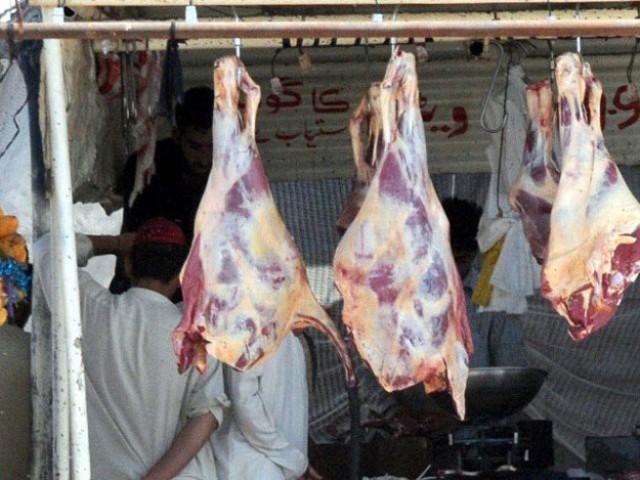
Going with the plan, she, on Saturday, bought some veal from her regular butcher and decided to wash it first as she got home. However, the meat smelt so bad that she had to return to the butcher only to find that the piece was cut from leftover of the previous day’s stock.
“Wish we had a similar authority here in Karachi to punish such butchers,” she said in a clear reference to the Punjab Food Authority (PFA)’s recent crackdown on food businesses that failed to meet minimum hygiene standards.
Read: Food quality: PFA develops grading system for eateries
Ali is not the only one expressing this wish, almost every consumer in the city is aware of the actions taken by the PFA and wants to see similar moves against food businesses in Karachi.
From farm to storage and retail (end-user), the overall quality and standard of food remains unsatisfactory in every part of the country. But that has started to change, at least in Punjab.
In July 2011, the Punjab government established the PFA under the Punjab Food Authority Act 2011 to address food safety and quality issues across the province. Starting from Lahore, the PFA’s crackdown has expanded to Faisalabad, Gujranwala, Rawalpindi and Multan and it promises to extend the scope to the whole province.
With its operation into the third year, the PFA has already earned rave reviews from the people and is the focus of growing attention on the social media.
PFA’s moves
Led by Ayesha Mumtaz, the PFA Director Operations, the autonomous body has been conducting raids on food outlets, farms, production facilities, marriage lawns, bakeries, milk shops and even checking the vehicles transporting food.
They have fined and sealed many restaurants and warned many more for not following minimum hygiene standards set by the provincial government. Even high-end restaurants, including those in five-star hotels, were not spared while international fast food chains were also sealed.
The drive also focused on the supply chain of food items consumed in households almost every day. These include adulterated loose milk, rotten eggs, substandard oil and ghee, meat and sweets to name a few.
According to a report in Dawn, the PFA conducted more than 6,000 raids and issued notices to about 3,000 food factories and eateries. It imposed Rs12 million in fines during fiscal year 2013-14, the latest period for which data is available on its website.
The PFA has also made it mandatory for every food business to obtain a licence. As a result, the number of licenced food businesses is growing.
Read: Punjab Food Authority seizes suspected ‘pig meat’ from Lahore
The PFA issued 2,372 licences in three categories during FY13. The number went up three-fold, 317% to be exact, to 9,899 in FY14 to bring more food businesses into the PFA hygiene and quality regime.
The authority is documenting all its activities on its website and even uploading images of substandard food and raw material discarded during the raid. It has also introduced an Android app to automate the process of monitoring and complaints, a step applauded by the consumers.
The contrast in Sindh
On the contrary, there is no food authority in Sindh to monitor the quality of food in its capital, which alone is the largest consumer market for dairy, poultry, meat and other food products, not to mention the thousands of eateries including roadside hotels, high-end restaurants and international food chains.
The only action one remembers was the closure of Dilpasand Sweets by the Karachi Metropolitan Corporation’s health department earlier this year. The restaurant was sealed in the wake of death of a 13-year-old girl allegedly after consuming a toxic burger at the outlet.
Had there been a dedicated food authority in the province, the precious life might have been saved.
Though KMC officials visited Dolmen Mall’s food court following the incident, collected samples from different outlets and even found germ-infested food at some, no closures were made.
One can only hope that the lawmakers enact a similar law and enforce it religiously to benefit those who voted them to power.
The writer is a staff correspondent
Published in The Express Tribune, September 7th, 2015.
Like Business on Facebook, follow @TribuneBiz on Twitter to stay informed and join in the conversation.

















COMMENTS (11)
Comments are moderated and generally will be posted if they are on-topic and not abusive.
For more information, please see our Comments FAQ